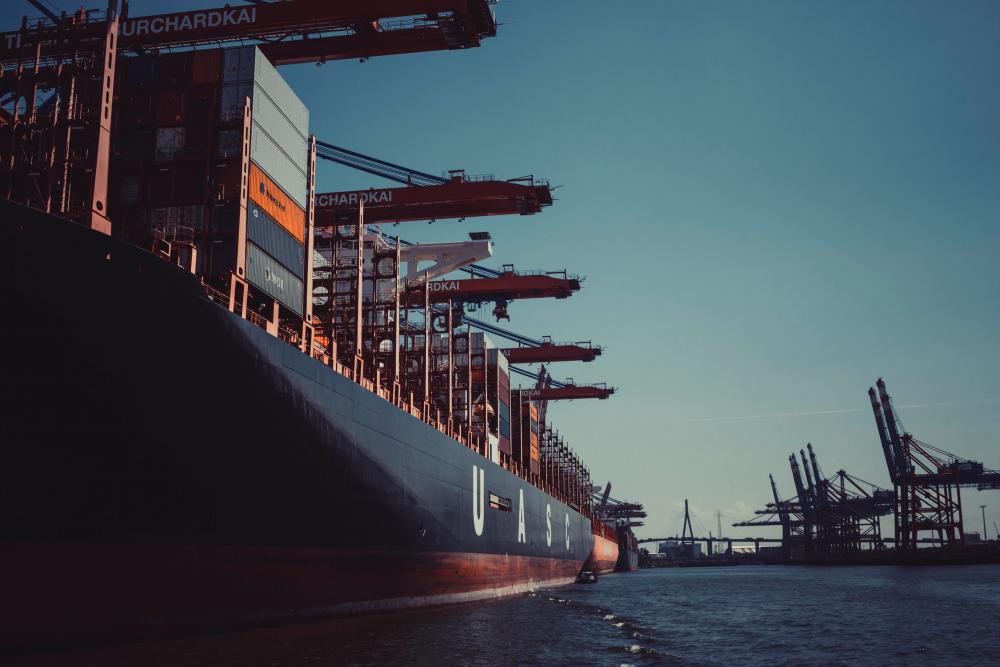MARITIME transport is one of the most important nodes in international trade because of its significant effect on the overall performance of global supply chains.
The plethora of shipping traffic and maritime trade, on the other hand, had a significant adverse impact on the marine environment and human health.
According to United Nations Conference on Trade and Development statistics, the global commercial fleet increased by 63 million deadweight tonnage between January 2021 and January 2022.
The majority of fuel used in maritime transport is petroleum-based and fuel combustion, accounting for air pollution caused by exhaust gases.
According to the International Maritime Organisation (IMO), with almost 90% of worldwide trade handled by sea, the maritime sector accounts for around 3% of global yearly carbon emissions.
Global shipping emissions might increase by up to 130% by 2050, according to the IMO.
At the beginning of 2020, the IMO implemented new sulphur regulations, which set a limit on the sulphur content in the fuel oil used onboard ships from 3.5 % to only 0.5% mass by mass.
First, the IMO set a goal for carbon dioxide (CO2) emissions in the shipping industry: a 50% drop in CO2 emissions by 2050, compared to 2008.
The IMO also agreed to cut the carbon intensity of international shipping by 40% by 2030, and to work towards a 70% drop by 2050.
Carbon reduction in the maritime industry is also essential to Malaysia’s carbon agenda.
As a critical link in the global supply chain, fostering carbon reduction initiatives would address the industry’s environmental and climate change repercussions, notably in shipping and ports sector.
There are other essential benefits that will overcome the existing compliance issues, such as satisfying the sustainability objective, enhanced biodiversity, healthier socioeconomics, and a stronger emphasis on renewable energy encouragement.
Malaysia, as a flag state, port state and coastline state has ratified nearly half of the IMO conventions to guarantee safe and secure shipping, with marine environmental protection as a prime concern.
As a result, it is critical for Malaysia’s maritime industry to establish its own decarbonisation milestones that are consistent with the IMO’s plan to reflect the commitment made.
Prime Minister Datuk Seri Ismail Sabri Yaakob, in his presentation of the 12th Malaysia Plan, emphasised that the government aims to achieve carbon neutrality by 2050.
Carbon neutrality refers to the process of balancing greenhouse gas (GHG) emissions by removing an equal amount of carbon from the atmosphere in return for the amount produced.
A maritime industry strategic plan must clearly define the status, issues, and potential courses of action for the particular subject, as well as provide a roadmap.
While great progress has been made, significant obstacles must be addressed before the industry can accomplish such ambitious goals.
The ongoing actions fall under the United Nation Framework Convention on Climate Change and the Paris Agreement’s sustained action will serve as the foundation for developing the framework idea of net-zero emissions.
The agreement mandated Malaysian government to make long-term commitments to reduce GHG emissions and to increase those efforts over time.
It is critical to create awareness among the maritime community on the need for action to achieve net-zero carbon emissions in Malaysia’s maritime industry.
To date, Malaysia is on the right track and some of its port administrators have endorsed the IMO’s decarbonisation roadmap, encouraging port operators to follow the IMO’s standards on carbon emissions reduction and ship energy efficiency.
Port Klang, for example, is committed to assisting this by being early adopters of green technology.
Simultaneously, there is immense room for improvement in terms of efficiently reducing carbon emissions.
Research and development investment in the development of green technologies and the manufacturing of high-value-added goods appears to contribute to a shot on target for carbon neutrality by 2050.
At some point, Malaysia has to enhance its energy efficiency in light of the significant rise in worldwide seaborne commerce volumes and zero-carbon energy must be derived from non-fossil fuel or renewable energy sources such as methanol, ammonia, and hydrogen.
Recognising the importance of promoting sustainable maritime development, Malaysia also may be able to accomplish its carbon neutrality goal by 2050 by establishing a roadmap.
Hence, the government should emphasise the need of a new governance framework in strengthening administrative and legislative concerns.
Malaysia has several agencies to support the high ambitious target, it is now time to establish tremendous synergy among the authorities involved yet eliminating unnecessary bureaucracy.
The newly developed governance framework is critical in moving the maritime industry towards carbon neutrality.
The results will undoubtedly help society, the economy, and the country since they complement the 12th Malaysia Plan’s target of achieving net-zero emissions by 2050.
Dr Izyan Munirah Mohd Zaideen is Senior Lecturer at the Faculty of Maritime Studies, Universiti Malaysia Terengganu and Capt Mohd Faizal Ramli is an EHS Marine Specialist in Oil and Gas sector. Comments: letters@thesundaily.com










